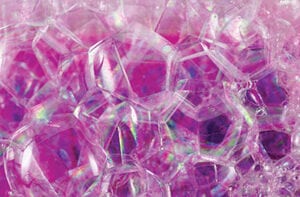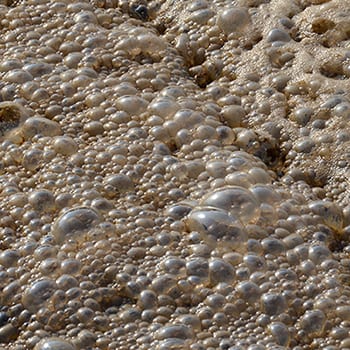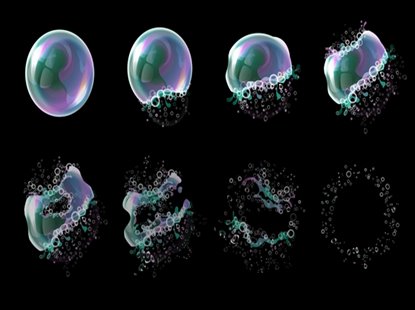Discover the Environmental Impact of Defoamers in Industrial Applications
Discover the Environmental Impact of Defoamers in Industrial Applications
Blog Article
The Duty of Defoamers in Enhancing Product Quality and Efficiency
In various making procedures, the presence of foam can significantly impede product top quality and operational efficiency. Defoamers function as vital additives that alleviate this issue, ensuring smoother manufacturing workflows while boosting the useful and visual qualities of the end products (defoamers). Their application spans a plethora of markets, from food and beverage to drugs, where consistency and dependability are critical. Nonetheless, the option of the appropriate defoamer can be essential to accomplishing optimum outcomes, increasing important questions concerning formulation compatibility and efficiency metrics that warrant additional exploration.
Recognizing Defoamers
Recognizing the role of defoamers is important for preserving product high quality throughout various markets. Defoamers are chemical ingredients developed to protect against the formation and decrease of foam in liquid systems, which can negatively impact processes such as mixing, filling up, and surface area stress. Lathering can result in ineffectiveness, product issues, and compromised aesthetic appeal, making defoamers a critical element in producing procedures.
In commercial applications, defoamers help to improve product consistency and stability. In the paint and coatings industry, foam can interfere with the application process and the final surface. In food and drink production, excessive foam can prevent bottling and packaging efficiency. The reliable use defoamers not only ensures smoother manufacturing processes but likewise adds to superior item performance.
In addition, the selection and formulation of a defoamer should align with particular application demands, such as compatibility with other components, performance under differing temperature level and pH problems, and prospective regulative restraints. Eventually, understanding defoamers' features and their value in different formulas is vital for enhancing production and making certain the highest top quality final product.
Sorts Of Defoamers
Defoamers can be categorized into numerous kinds based upon their structure and device of action. The main kinds consist of silicone-based, non-silicone organic, and inorganic defoamers.
Silicone-based defoamers are amongst one of the most efficient, largely due to their capability to spread out rapidly on the liquid surface and interrupt foam development. Their one-of-a-kind chemical framework permits remarkable security, making them ideal for high-temperature applications and environments with varying pH levels.
Non-silicone natural defoamers, often composed of fatty acids or all-natural oils, are valued for their biodegradability and reduced toxicity. These are usually made use of in food and drink applications where safety and security and environmental impact are critical.
Inorganic defoamers, that include compounds like talc or calcium carbonate, act by boosting the thickness of the liquid, thus minimizing foam security. They are commonly made use of in commercial procedures where compatibility with various other products is not a worry.
Each sort of defoamer has distinctive benefits and restrictions, enabling customized options relying on the details frothing problems come across in different applications. Comprehending these differences is vital for maximizing performance and accomplishing preferred product high quality.
Applications Throughout Industries
Many sectors leverage defoamers to improve product quality and operational efficiency. In the food and beverage sector, defoamers are essential in procedures such as developing and dairy products production to stop foam development, which can result in inefficiencies and item disparity. By controlling foam, suppliers can make sure better return and a more consistent product.
In the pharmaceutical market, defoamers play an important duty in the formulation of fluid medications, where too much foam can restrain mixing and exact application. Their use aids keep the stability of the formulations and promotes smoother manufacturing processes.
The paint and finishings visit their website industry likewise counts on defoamers to boost the performance of items during application. By minimizing foam, these ingredients make certain a smoother coating and enhance the visual qualities of the end product.

Benefits of Making Use Of Defoamers
While the application of defoamers differs throughout sectors, their advantages continually boost item high quality and procedure effectiveness. One considerable advantage is the decrease of foam development throughout manufacturing processes, which can otherwise cause manufacturing hold-ups and inconsistencies in product high quality. By reducing foam, defoamers allow a smoother circulation of materials, helping with more efficient procedures and lowering the probability of devices breakdowns.
Additionally, making use of defoamers can boost the look and texture of end products. In sectors such as coatings, paints, and food processing, too much foam can jeopardize the aesthetic appearances and general quality, while the appropriate defoamer application makes certain an uniform finish and preferable qualities. Defoamers can add to cost financial savings by reducing waste during manufacturing and maximizing the use of raw products.

Selecting the Right Defoamer
Choosing the right defoamer is vital for enhancing manufacturing processes and making sure product top quality. The selection of defoamer affects not only the efficiency of foam control however likewise the general performance qualities of the final product. Factors to consider consist of the type of application, the chemistry of the formulation, and the environmental conditions under which the product will be used.
Different industries may need details defoamer types, such as silicone-based, organic, or polymeric defoamers. Comprehending the compatibility of the defoamer with the key ingredients is necessary to avoid unfavorable responses that might compromise product honesty. Additionally, the defoamer's effectiveness in different temperature levels and pH levels need to be evaluated to make certain consistent efficiency.
Examining the defoamer in small applications can give important understandings into its performance and viability. Consideration of governing compliance, especially in food, drugs, and cosmetics, is paramount in choosing a defoamer. Ultimately, a comprehensive assessment of these aspects will bring about the choice of a defoamer that not only manages foam effectively yet likewise boosts the quality and efficiency of the end product.
Verdict

In final thought, defoamers are crucial additives that substantially enhance item high quality and efficiency across various sectors. The tactical option and application of defoamers lead to cost financial savings, optimized source usage, and increased client complete satisfaction.
Foaming can lead to inefficiencies, item defects, and jeopardized aesthetic charm, making defoamers an essential component in making operations.

Report this page